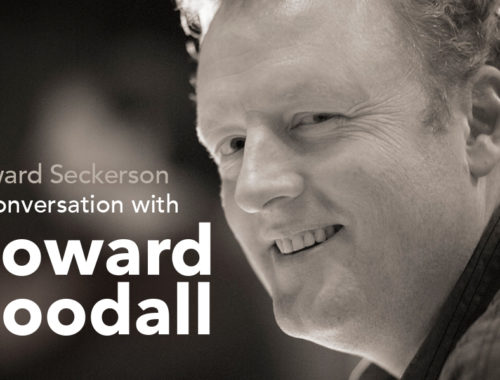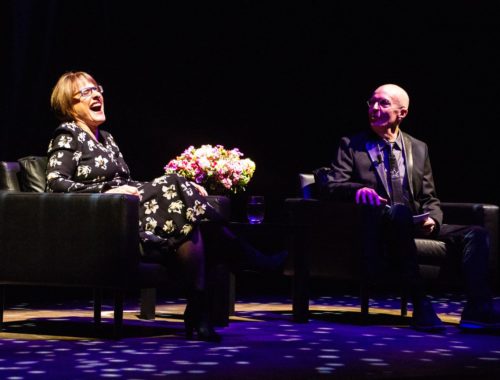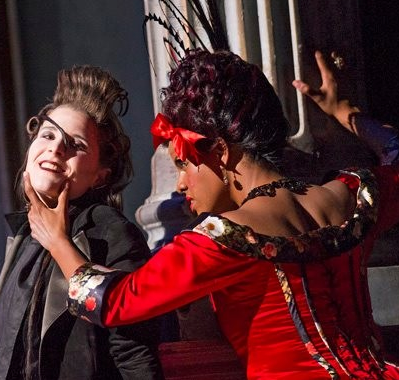GRAMOPHONE Review: Mahler Symphony No. 9 – Bavarian Radio Sinfonieorchester/Rattle
 In a matter of only weeks before this recording arrived for revue I’d been privileged to witness two great (and I don’t use the word lightly) Rattle performances: an unforgettable Mahler 2 at the BBC Proms and an equally unforgettable Elgar 2 at the opening of the London Symphony Orchestra’s new season a matter of days later. Now this impressive Mahler 9 with the latest of his ‘special relationships’ – the Symphonieorchester Des Bayrischen Rundfunks. All this is another way of saying that I have known Rattle’s work from the beginning of his career – and mine – and I cannot remember a time when it was freer, more insightful, more revealing, and more urgent.
In a matter of only weeks before this recording arrived for revue I’d been privileged to witness two great (and I don’t use the word lightly) Rattle performances: an unforgettable Mahler 2 at the BBC Proms and an equally unforgettable Elgar 2 at the opening of the London Symphony Orchestra’s new season a matter of days later. Now this impressive Mahler 9 with the latest of his ‘special relationships’ – the Symphonieorchester Des Bayrischen Rundfunks. All this is another way of saying that I have known Rattle’s work from the beginning of his career – and mine – and I cannot remember a time when it was freer, more insightful, more revealing, and more urgent.
There’s a spontaneity and immediacy about this Mahler 9 that feels like it’s not for repetition. A Gramophone reviewers’ mindset is too often by default in ‘comparison’ mode but this account of Mahler’s ostensibly last symphony comes off the page in ways that are so personal that while I was listening comparisons seemed odious. I almost wish that it wasn’t a recording at all and that I’d experienced it live – just once.
The grimace of stopped horns apart, there’s something reassuringly ‘open’ about the first bars of music, second violins offering up Mahler’s weary but deeply consoling first subject in such a way as to communicate that its tenderness is infused with a terrible foreboding. The urgency of what follows is in some ways the single most defining feature of the performance – in this first movement it positively hurtles into each inevitable collapse. It’s hard to describe the hollow dissonance of a lone clarinet and shell-shocked bassoon left hanging in the aftermath of the second upheaval. There is a recklessness to the reading up to and including the moment it hits a wall of trombones (at the big development climax) and is brought to a grinding halt. I’m not sure I’ve heard that moment sound quite so terrifying. All of which adds potency to those ‘no man’s land’ moments where the music quite literally seems to have no idea which way, if anywhere, it is headed.
Berthold Goldschmidt, Rattle’s teacher and muse, thought of the Ninth’s middle movements as evidence of everything Mahler disliked about provincial and big city life respectively. The country dancing of the second movement sounds pretty desperate in Rattle’s hands, bow heels doubling down on those clumsy downbeats, all stomping and slapping in the dance equivalent of the comedy of life. An especially gruff viola finds it heavy going as the music spins out of control.
The Rondo-Burleske is like nothing else in Mahler. An urban savagery marks out the counterpoint (precursor to the opening of Bartok’s Miraculous Mandarin, I always think) – a Baroque-like formality grown streetwise. Jochum’s old orchestra has rarely sounded so 21st Century. And Rattle really makes capital of that tender premonition of the valedictory last movement but then even more so the derisive clarinet which so cruelly parodies it.
The depth of expression from the Bavarian strings is a welcome embrace amidst the encroaching darkness of the last movement – but what really tells here is the phrasal mobility, the sense that the movement keeps regenerating itself until a faltering pulse signalled halfway through points to the inevitable disintegration. Expansive in Mahler is not about standing still. Few can get away with doing a Bernstein on this movement (his protracted descent into amorphousness is uniquely bleak) and needless to say Rattle goes gentler, much gentler, into this good night.
The Rattle renaissance continues – or has it just begun?
You May Also Like

Howard Goodall in conversation with Edward Seckerson
14/06/2019
GRAMOPHONE: From Where I Sit – April 2020
22/04/2020

